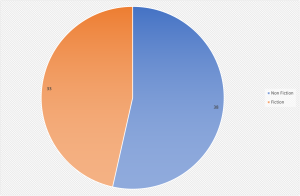I’m afraid this might turn in to a bit of a rant, because the spur to my writing is annoyance. So, apologies in advance.
The specific trigger is that initially joyful news that Ned Beauman, author of Boxer, Beetle, my favorite book of 2011, has a new book coming out in July, entitled The Teleportation Accident. (He’s posted what he calls a “reader’s guide” on his blog here, and it sounds pretty awesome). Boxer, Beetle was very much the kind of book that I am discovering I like the best— one that takes place in, more or less, our world, but in which something is very slightly askew, allowing odd and perhaps fantastic things to happen (I am working on writing something more about what exactly I mean by this). So, I was very pleased to see that he had something new coming, so soon after the last book.
Oh, but wait. I said it was out in July, but that’s only in the U.K. In the U.S., it won’t be released until…MARCH OF 2013. Yes: nearly a full YEAR after the book has already been published and printed and gone on sale in Britain. Actually, I guess that’s just about nine months, so maybe they have to impregnate an American with the book and wait for her to give birth in the U.S. so the book can have citizenship. Otherwise, this just seems insane to me. It’s not as though this needs to be translated or anything. They’ll most likely give it a new cover, but what else has to be done to it?
I had a similar problem a couple of years ago with music. Specifically, albums by Katy B and Jamie Woon were released in the U.K. months before they made it to the U.S. Now, of course, with all of these things, one can purchase them anyway. The Teleportation Accident is on Amazon UK, and you can get it sent to the U.S. for, really, about what a new hardcover costs in a bookstore anyway (and I will do this). Sometimes it’s quite a bit more expensive— ordering the Katy B record before the US release would have cost me about $35 (in that case, I waited). But still, it’s an option.
But this also seems symbolic of the problems that these industries are dealing with. I know, of course, that the answer to my “why?” will be a legal, not practical, one: licensing, rights, copyright, royalties, etc. A book deal in the U.K. does not equal a book deal in the U.S. To some extent, that makes sense, and I don’t claim to know exactly how they should deal with that stuff. But for the music industry, especially, this just seems nuts. I waited to by the Katy B album (about six months); I ordered Jamie Woon from a U.K.-based online company who didn’t charge insane shipping rates. But if I were slightly less honest, upon discovering the obstacles that were in the way of my buying these things honestly, I would simply have gone and pirated them (if I were significantly less honest, I would not even have checked on legal ways of buying them). These were high-profile releases in the U.K., and both albums were up for all kinds of awards; there’s no way there wasn’t a torrent for them out there somewhere. It would have been faster, and it would have been free. I want artists to get paid for what they do, so I didn’t do that. But it seems crazy to me that the record industry would tolerate any unnecessary friction in the buying process at this point, when everyone knows that everything is available for free. Their goal should be to make it as easy as they possibly can for consumers to buy what they want, when they want. Book publishers have less of a piracy problem, even with eBooks, because the formats are locked down, but it’s a problem nonetheless.
Moreover, given the fact that so many people learn about books and music and movies online anyway, having a single release date wold allow for these things to be marketed once; as it is, publishers and labels have to do, in essence, two separate campaigns. The Katy B album was a big deal in the U.K., but little of that hype made it to the U.S.; rather than take advantage of the buzz and try to amplify it, bringing U.S. listeners in at the same time by creating something more like a global release, the label waited until the record was old news in Britain, forcing them to start entirely from scratch in the U.S.
Of course, it’s not unlikely that none of my examples would have sold/will sell a whole lot in the U.S. in any case. I don’t know how Boxer, Beetle did in the U.S., but it certainly wasn’t topping the best seller lists. Fine. But the publisher isn’t saying that they don’t think the new book will sell well enough to make a release in the States worthwhile, and so they are not going to bother with it at all— they’re just waiting a really long time for it. The former would be frustrating for me, but it would make sense. The latter makes none at all.
Spotify is another good example. Things are available on Spotify in Europe that aren’t available here, and vice versa. Again, the reason is a legal one; licensing deals are specific to individual countries (or to the EU). But these laws are made by human beings, and they could be changed. Now that distance itself is no longer the issue— or at least is less and less of one— these legal differences seem like the biggest obstacle, and it’s one that the owners of “content” have created for themselves. It seems to me to be indicative of their unwillingness or inability to deal with the environment in which they are trying to sell this stuff. Technology has threatened their existing business models in a very real way, but at least part of the problem is that they refuse to try to actually leverage new technologies to give their listeners or viewers or readers what they want. People were once willing to wait months for things to be available, because they understood the material factors that caused the delays. Now, we likewise know that those factors have largely dissolved, and we will not tolerate artificial obstacles. If you make it too hard for people to buy a book or an album, they simply won’t buy it— either because they’ll go get it for free, or because they’ll move on to something else.


